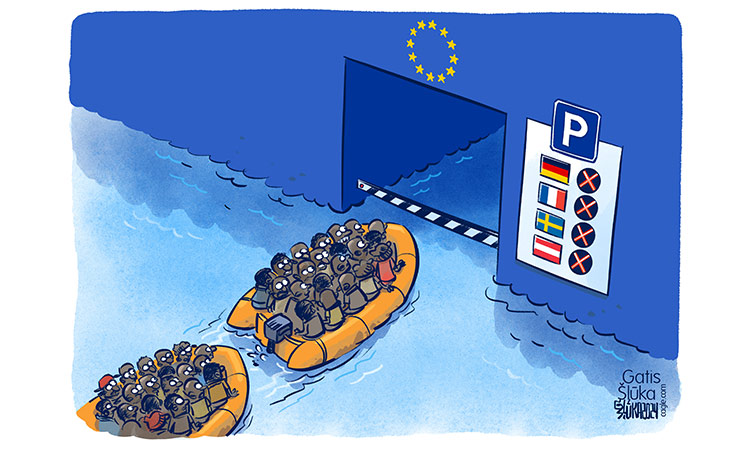Global measles outbreak a cause for worry

The number measles cases have been on the rise.
If figures could speak, the warning sirens would be loud.
During the first three months of 2019, more than 110,000 measles cases were reported worldwide, representing a near 300 per cent jump from the same period last year. And in 2017, measles cost some 110,000 people, mostly children, their lives, representing a 22 per cent increase from the previous year.
Unicef officials have made it clear that although two doses of the measles vaccine are essential to protect children from the disease, a lack of access, poor health systems, complacency, and in some cases a fear of vaccines, led to a drop in global coverage to only 85 per cent in 2017, which has remained relatively constant over the last decade.
It should not be forgotten that measles is a highly contagious viral disease. As per the World Health Organization (WHO), it remains an important cause of death among young children globally, despite the availability of a safe and effective vaccine.
Measles is transmitted via droplets from the nose, mouth or throat of infected persons. Initial symptoms, which usually appear 10–12 days after infection, include high fever, a runny nose, bloodshot eyes, and tiny white spots on the inside of the mouth. Several days later, a rash develops, starting on the face and upper neck and gradually spreading downwards.
Adding to the concern is the fact that measles is currently spreading in outbreaks in many parts of the world, including in the United States, Europe, the Philippines, Tunisia and Thailand. Tens of thousands of cases have been reported in Africa. Ukraine alone has had more than 30,000 cases and 11 deaths since January.
The US recorded 695 cases of measles in 2019, the most of any year since the disease was declared eliminated at the turn of the century.
In the US, the number of children who had not received their first round of immunization touched over 2.5 million. The new tally of American cases confirmed by US authorities has surpassed the previous high of 667 reached in 2014 and should be seen as a wake-up call for remedial action.
The growing anti-vaccine movement in richer nations is being cited as a major reason for the resurgence of the once-eradicated disease. This needs to be effectively countered.
Social media has compounded the problems in this case. The anti-vax phenomenon has adherents across Western countries but is said to be particularly high profile in the US, where it has been fueled by medically baseless claims spread on social media.
Routine measles vaccination for children, combined with mass immunisation campaigns in countries with low routine coverage, are key public health strategies to reduce global measles deaths.
As well stated by Henrietta Fore, Unicef Executive Director, the measles virus will always find unvaccinated children. If we are serious about averting the spread of this dangerous but preventable disease, we need to vaccinate every child, in rich and poor countries alike.
Prevention is any time better than cure.







